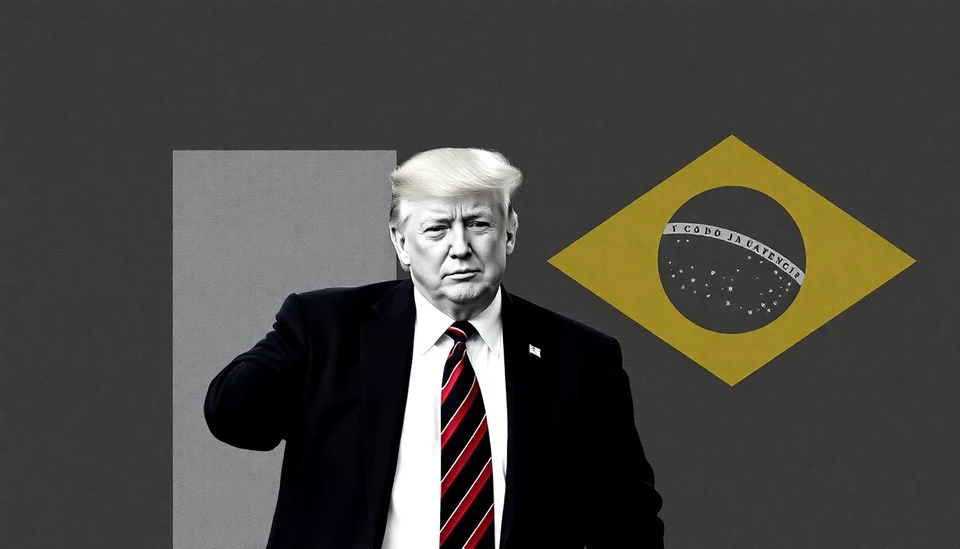
Recent developments in the political landscape have led to a significant shift regarding the perception of Donald Trump in Latin America, particularly among Mexicans and Brazilians. With Trump’s possible return to the presidential race and his focus on altering foreign policy dynamics, both nations are experiencing a wave of anxiety and concern about future relations with the United States.
As the prospect of Trump’s influence looms larger, leaders and citizens in Mexico and Brazil are grappling with the potential ramifications of his policies. Early reactions suggest a strong undercurrent of worry about economic ties, immigration policies, and bilateral relations which could be adversely impacted by a Trump presidency.
During his previous tenure as president, Trump’s administration adopted a stringent approach towards immigration, particularly from Mexico. The mention of building a border wall and tightening regulations has reignited fears in Mexico about a more isolationist and adversarial United States. Mexican officials are monitoring the situation closely, apprehensive about how Trump's revival in politics could shift the balance of power and influence in their relationship with the U.S.
Meanwhile, in Brazil, President Luiz Inácio Lula da Silva is also wary of Trump’s return. Lula's government has sought to foster a cooperative relationship with the U.S., especially on climate change and economic issues. Brazil’s apprehension centers around the possibility of a Trump presidency reviving tensions that may destabilize diplomatic efforts aimed at regional cooperation and addressing global challenges.
Political analysts are cautioning that a Trump-led U.S. might withdraw from multilateral agreements which have been crucial for intercontinental relations. This has sparked discussions within both nations about the need for contingency plans to mitigate any negative outcomes stemming from such a shift.
In the consumer market, the outlook is similarly grim. Business leaders from both countries are expressing concern over trade policies which could lead to tariffs, creating an atmosphere of uncertainty that could stifle growth. The specter of economic nationalism rekindled by Trump’s rhetoric could also alienate investors already wary of U.S. market volatility.
The political atmosphere leading up to the next U.S. presidential election is charged, and Latin America is beginning to realize that the stakes are high, not just for domestic policy but for international alliances and regional stability. This apprehension has led to calls for both governments to bolster diplomatic channels and strengthen ties with other global players to compensate for any potential downturn in relations with the U.S.
In conclusion, as the political climate surrounding Donald Trump continues to evolve, so too do the concerns of neighboring countries. With the looming possibility of his return to power, Mexico and Brazil find themselves at a critical juncture, prompting discussions on national security, economic resilience, and diplomatic strategies that may define the region's future.
#Trump #LatinAmerica #Mexico #Brazil #USPolitics #Diplomacy #InternationalRelations
Author: Daniel Foster




